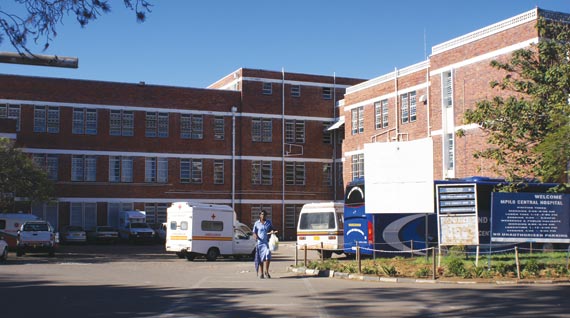Bulawayo residents have bemoaned the recent hike in hospital user fees which have rendered health services virtually inaccessible to the majority of Zimbabweans who are bearing the brunt of a failing economy.
In a circular to hospitals dated December 31, 2019, Health and Child Care Permanent Secretary Agnes Mahomva announced the new hospital fees, directing their immediate implementation.
Under the new fees, among other changes, ante-natal general ward per day will cost $160 at central hospitals such as Mpilo Central Hospital and United Bulawayo Hospitals (UBH), $120 at provincial hospitals and $80 at district hospitals with the same amounts being charged for post-natal care.
Caesarean birth will cost $2 500 at central hospitals and $1 500 at provincial hospitals and $1 000 at district hospitals.
The government also reintroduced maternity fees which had been previously scrapped.
The latest development has triggered a public outcry from members of the public who view the new fees as rather exorbitant and beyond the reach of many.
“We are really doomed,” lamented Samkeliso Ndlovu, a Bulawayo resident.
“We are condemned to a system that does not care about its citizens and reverses its policies on such grave matters willy-nilly. A system that does not prioritize health care is a disaster for any society. These hikes in medical fees are literally a death sentence to the majority of Zimbabweans who are barely surviving on one meal per day.”
Ndlovu said the government’s treatment of health matters indicated total failure.
“The reversal of free maternal health does not make sense at all. In fact it is the final confirmation that this government has totally failed. What then is happening to all the taxes we are forced to pay for through the nose? Where is the 2percent tax going?” she further queried.
Social commentator, Khanyile Mlotshwa, said the increase would escalate the number of deaths in the country.
“Our government has become so detached from the real lives that people live,” observed Mlotshwa.
“These new charges are likely to increase deaths, unnecessary deaths, deaths that could be avoided. We need a socialist health policy where the government can fund health, alongside education. People should not die because they are poor.”
Itai Rusike, executive director of Community Working Group on Health (CWGH) told CITE while it was understandable that health institutions were facing a myriad of challenges, the newly gazetted fees were beyond the reach of many Zimbabweans.
“We understand that the hospitals are facing severe cash constraints,” said Rusike.
“However, we are concerned that the approved hospital user fees are way beyond the reach of the general members of the public who do not have any medical insurance cover, lack any safety net, are earning salaries below the poverty datum line and hence depend on the public health institutions to access health care services.”
Rusike said pregnant mothers in need of caesarean section, were the most affected by the new development.
“The low-income population can no longer afford to get ill because they cannot afford expensive curative services,” he bemoaned.
“The new hospital user fees will kill the health-seeking behaviour as people will get sick and die at home because of the fee barrier.”
Political analyst, Thomas Sithole, said he did not foresee any mass protests as a result of the hikes, adding citizens were living in fear following last year’s beatings during the January protests.

